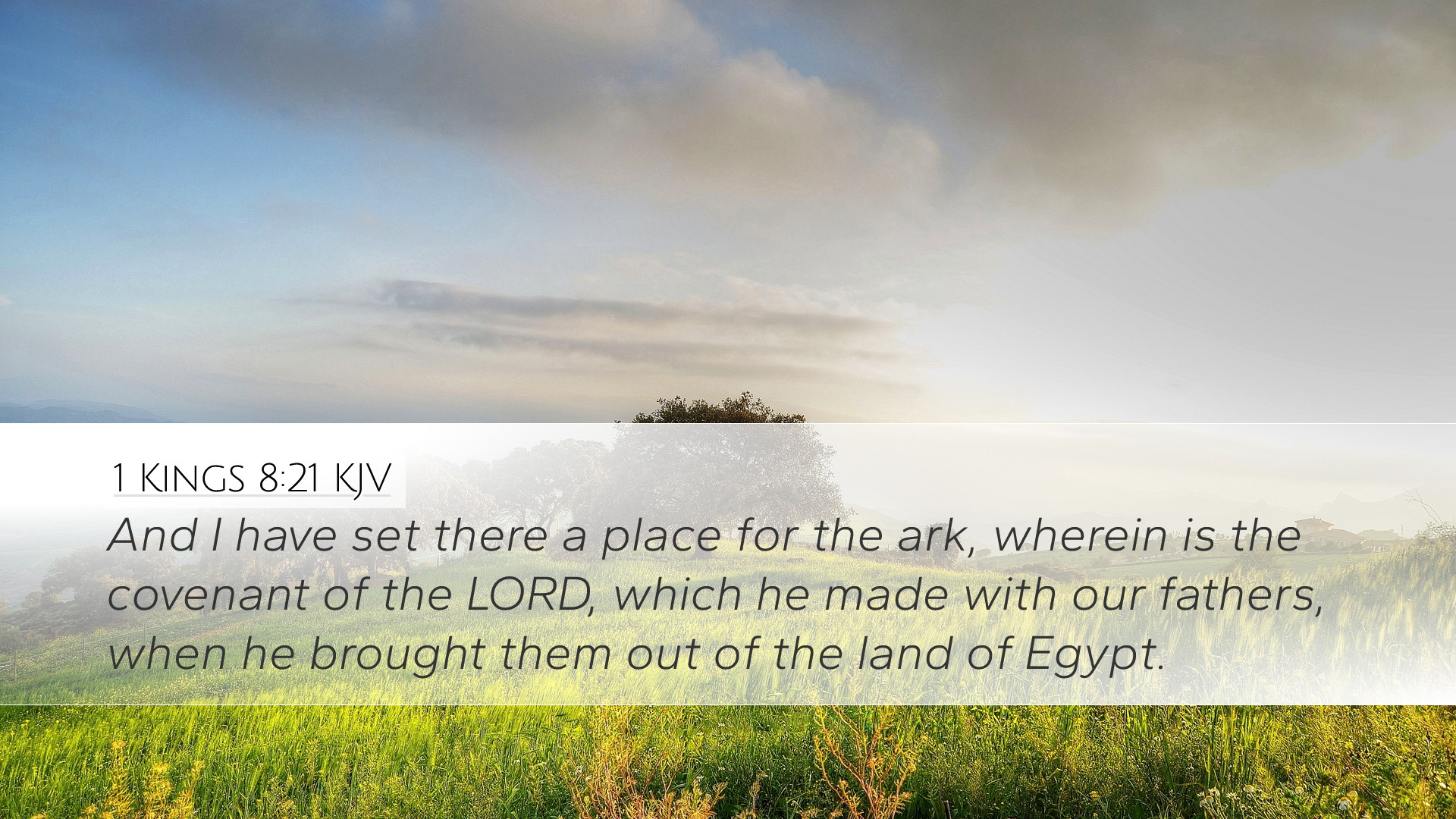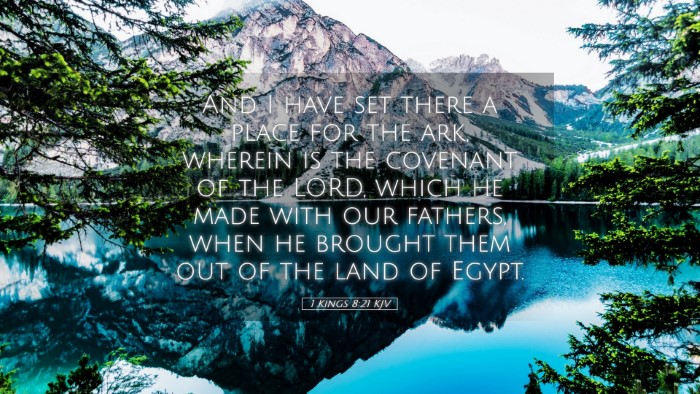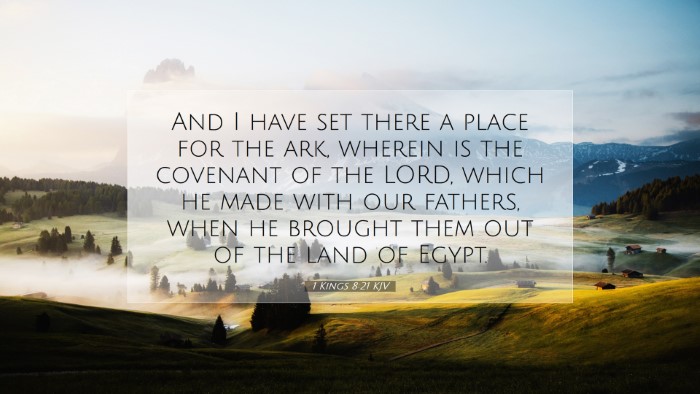Commentary on 1 Kings 8:21
Verse Text: "And I have provided there a place for the ark, wherein is the covenant of the Lord, which he made with our fathers, when he brought them out of the land of Egypt."
Introduction
The verse selected for commentary is a significant moments in the history of Israel, reflecting upon the themes of covenant, divine presence, and worship. In this commentary, insights from Matthew Henry, Albert Barnes, and Adam Clarke are compiled to explore the theological implications and historical context of this passage.
Historical Context
The narrative of 1 Kings 8 centers around the dedication of the temple built by Solomon. This temple was designed to be the dwelling place of God among His people, replacing the portable tabernacle that had been used during the wilderness wanderings. Solomon's dedication prayer reveals his understanding of the significance of the temple as a physical environment for worship and a representation of the covenant relationship between God and Israel.
Solomon’s Role
According to Matthew Henry, Solomon’s role as the builder of the temple underscores his position as a leader chosen by God to fulfill divine purposes. He provides the architectural beauty and structural foundation needed for a more permanent place for Israel's worship, thus indicating a transition from nomadic worship to a settled expression of piety.
The Ark of the Covenant
The ark of the covenant, mentioned in this verse, was a sacred object that held immense significance. Albert Barnes emphasizes that the ark represented God's presence among His people and contained the tablets of the Ten Commandments, symbolizing the covenant relationship God had established with Israel. The placement of the ark in the temple signals a new phase in the relationship between God and His people, transitioning from a mobile to a fixed abode for God’s presence.
Theological Themes
The Covenant
This verse reinforces the importance of the covenant, a central theme throughout Scripture, as articulated by Adam Clarke. He notes that the covenant represents not only the laws given to the Israelites but also the commitment of God to His people. The historical reminder of God’s deliverance from Egypt highlights the redemptive nature of the covenant and the foundational narrative of liberation and identity for Israel.
God’s Presence and Worship
This verse invites reflection on the nature of worship and God’s presence among His people. Matthew Henry describes how the temple serves as a place where heaven and earth intersect; it becomes a microcosm of the heavenly reality. The act of providing a place for the ark signifies a desire for God to dwell intimately with His people, emphasizing the necessity of proper worship and acknowledgment of His holiness.
Application for Today
For pastors, theologians, and students, this passage is rich with implications for understanding worship practices, the importance of community spaces dedicated to God, and the significance of covenant in the life of the believer.
- Worship Centers: The modern church can see echoes of the temple in community worship spaces that foster an environment for the communal and individual experience of God's presence.
- Covenant Identity: The covenant relationship established with believers through Christ can be understood as a continuation of the narrative seen in 1 Kings, urging a commitment to uphold God’s laws and remind congregants of their divine deliverance.
- Divine Presence: Just as the ark represented God’s presence, so the church today serves as the body of Christ, filled with the Holy Spirit. Understanding this can deepen the theological discourse surrounding the nature of worship and community.
Conclusion
In conclusion, 1 Kings 8:21 serves not only as a record of historical significance but also as a theological landmark in understanding the relationship between God and His people. The insights derived from public domain commentaries allow for a multifaceted exploration of this passage, revealing its enduring relevance for contemporary faith communities. As we reflect on this scripture, may we be encouraged to advocate for spaces that honor the divine presence and uphold the covenantal relationship that transforms lives.


